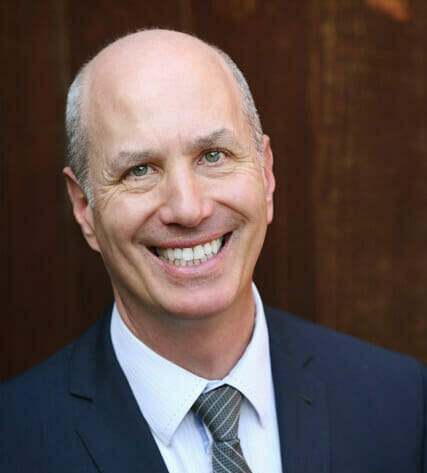
Message from the Dean
Dr. John Tegzes officially became the Dean for the College of Veterinary Medicine on July 15, 2024 after serving as the Interim Dean from September 1, 2022 – July 14, 2024. He is the author of hundreds of peer-reviewed publications and is a national leader in the veterinary medicine profession. His work in the interprofessional realm is nationally recognized and his student centric, interdisciplinary approach to health care education has made him a sought-after content expert. He is well known for his passion for education and his dedication to team building, collaboration, and leadership development.

A Message from Dr. John Tegzes
Our four-year curriculum has been carefully designed to emphasize not only excellence in the scientific and clinical knowledge required for success, but also to provide hands-on experiences that will challenge and propel our learners to meet the future needs of the profession. As is similar across all of the health professions, professional competence includes not only scientific and clinical knowledge and skills, but also requires effective teaming skills and behaviors. No matter where your future work will be, one thing is certain; you will need to work effectively in teams, and to collaborate with the many receivers of veterinary care and services. Our problem-based learning curriculum was carefully selected as the primary mode of classroom delivery during the first two years of the program, because it not only provides the knowledge, it builds critical thinking skills, and fosters effective teamwork and collaboration. Our distributive clinical curriculum in the second two years is designed to build clinical competence in a variety of carefully chosen community-based practice sites.
Our success is evident in the proficiency our graduates attain through their many classroom and clinical experiences. Our graduates also demonstrate success through their employment in the full range of professional opportunities available in the veterinary profession.
The WesternU College of Veterinary Medicine was founded on three basic principles. First, a commitment to lifelong learning. Beginning with day one of year one, the teaching methods used are designed to develop lifelong learning skills. This is partly because the scientific body of knowledge is accumulating at a rapid rate. Some of what we learn today, will be updated in the future as scientific research improves our understanding of health and disease. Being able to constantly learn throughout one’s career is paramount for meeting the needs of society. Second, a commitment to strategic partnerships.
By collaborating with clinical partners throughout California and beyond, we offer challenging and varied clinical experiences in primary and specialty care at state-of-the-art clinical facilities that are carefully selected to meet the educational needs of our students. Third, a reverence for life philosophy guides how animals are used for teaching and learning. We have set a very clear and intentional principle that no animals will be harmed for the sake of learning and education. We honor all lives, whether they are the animals we provide care to, or the teammates who are our students, faculty, and staff, treating all with respect while expecting the best from all, is vitally important to our mission.
Our College of Veterinary Medicine takes pride in being a force for social good. Our graduates become great veterinarians who are enthusiastic about improving the health of communities and society. Additionally, our veterinary students participate in a robust, requisite Interprofessional Practice & Education (IPE) curriculum along with the students from 8 additional health professions across the university. Through the university-wide IPE courses, students learn about how health care is delivered, how health care professionals work together to deliver that care, and how the health system can improve patient care and health care delivery.
John Tegzes, MA, VMD, Dipl. ABVT
Dean

